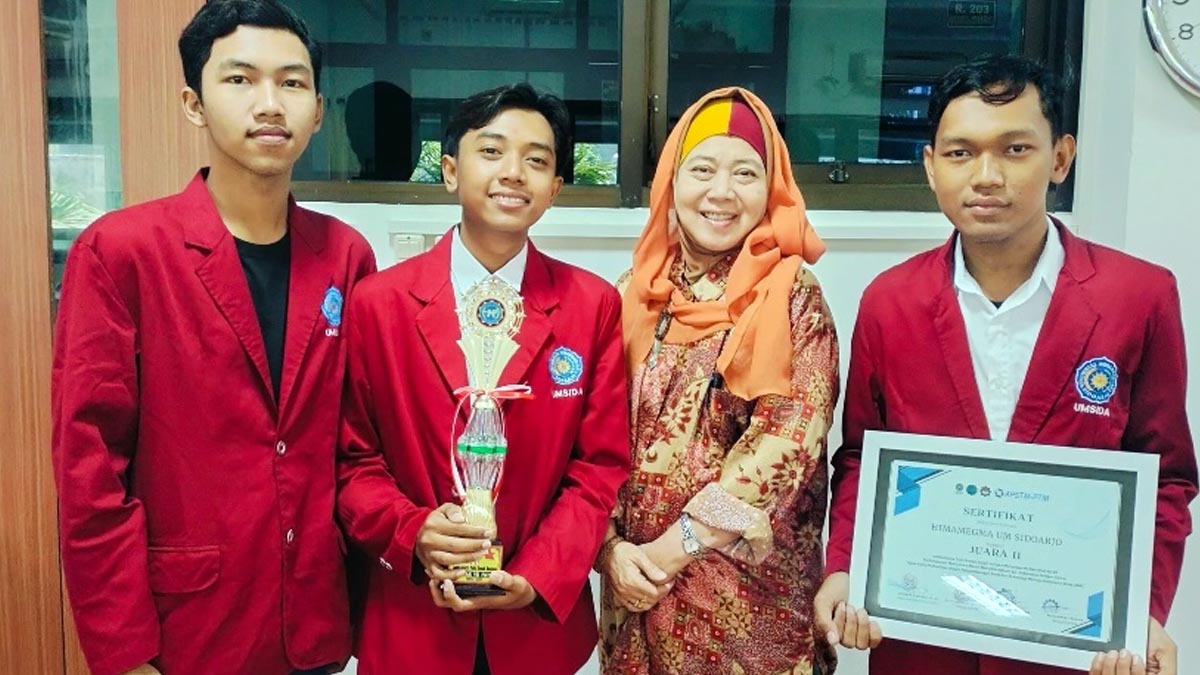PALMOILMAGAZINE, MEDAN – Engineering students from Universitas Muhammadiyah Sidoarjo (Umsida) achieved second place in the Lomba Karya Tulis Ilmiah (LKTI) organized by the Perhimpunan Mahasiswa Mesin Muhammadiyah at Universitas Muhammadiyah Sumatera Utara (Umsu).
Their award-winning article, titled “Pemanfaatan Energi Biomassa Limbah Cangkang Kelapa Sawit Menjadi Briket Sebagai Bahan Bakar Alternatif,” explores the utilization of palm oil shell biomass waste to produce briquettes as an alternative fuel.
Krisna Dwi Oktavian, the team leader, explained that the idea arose from observing the wastefulness of palm oil shells after they are processed for food production. “In Indonesia, there are many palm oil plantations and industries. They often discard the shells without using them. This prompted us to take the initiative to produce briquettes from palm oil shells,” Krisna stated, as quoted by beige-heron-208544.hostingersite.com from Umsida’s official page on Monday, July 22, 2024.
Krisna believes that briquettes made from palm oil shells would serve as an environmentally friendly and economically viable alternative fuel. In addition to potentially replacing liquefied petroleum gas (LPG) for cooking, these briquettes could also be used as fuel for steam power plants.
Even though it was simple to produce briquettes, it would need accuracy. First thing first, palm oil shell should be dry. After that it was burnt out to be charcoal and pounded until it became soft powder. “The powder should be mixed with gluten made of tapioca flour and pressed. After that it should be put into oven to accelerate drying process,” he said.
It would spend five days to make briquettes namely if it was manually processed with the sunshine in dry season. Krisna continued, they faced some challenges when making it, for instance, when burning it, they had no available or standard drum. “The most difficult thing was the firing process because we just used small drum. It was not even and some shell even had oil inside,” he said.
The innovation started two months before the competition with many trials and errors, and also adjustment. In one try, they once failed because of unperfect firing. But for their persistency and spirit to keep innovating, they successfully solve the challenges.
He hoped the innovation would get more progress and be developed in big scale program. “Palm oil shell briquettes would be good for alternative fuel so that we would not depend on fossil energy always,” Krisna said.
Team member, M Feri Setiawan that represented their work before the judges, got the positive response and evaluation to improve their work. “I am trusted to represent our work at Umsu. Some should be evaluated, for instance, pressing the coal and drying process,” he said.
The lecturer that developed the team, Dr. Prantasi Harmi Tjahjanti, SSi MT, fully supported the innovation. “I get the information from the students that there are many palm oil shells. I took them and suggested them to process it. The point is that how the students would create and innovate. Not only study. I am very glad, they do,” he said.
He also hoped the students would develop the innovation as refuse derived fuel (RDF) and for boiler fluidized bed combustion (FBC). By the support and lead from the lecturers, the innovation should deliver real contribution to take advantages on palm oil wastes and develop alternative energy in Indonesia. (P2)
